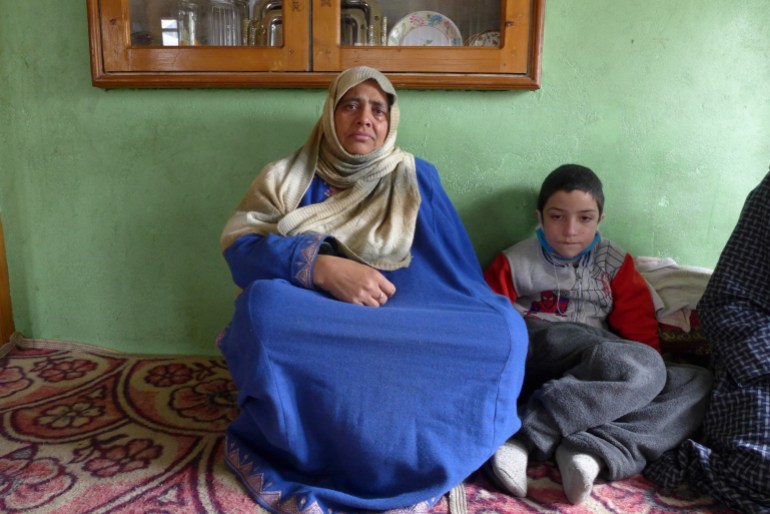Kashmir men spend over 100 days in jail for cheering Pakistan win

SRINAGAR: FEB. 17 – The families of three Kashmiri students, who have spent more than three months in jail for celebrating the Pakistan cricket team’s win over India, have appealed for their release.
Arsheed Yousuf, Inayat Altaf and Showkat Ahmad Ganai – all in their early 20s – were arrested last October on sedition charges in the northern city of Agra for sending WhatsApp messages “against the country” days after Pakistan thrashed India in the T20 World Cup cricket match in the United Arab Emirates.
Their families, immersed in extreme poverty, are struggling to bail them out.
“My son only loved cricket. He was never interested in anything else like politics. He was always concerned with his studies and his game,” said Inayat’s mother, Waheeda, from Indian-administered Kashmir’s Budgam district.
“We came to know from the social media on October 27 last year about his arrest over the cricket match post. We do not know what to do. We have made hundreds of pleas to the government to consider them yours and forgive them,” Waheeda said at her home in Doniwara village.
Waheeda says her husband is disabled and works as a carpenter to ensure the education of her children.
India’s loss had also triggered attacks against dozens of Kashmiri students in western Punjab state.
Uttar Pradesh Chief Minister Yogi Adityanath — known for anti-Muslim bigotry — had warned sedition law would be slapped against people who celebrated the Pakistan cricket team’s victory against India.
The three students were enrolled at Raja Balwant Singh Engineering College in Agra in Uttar Pradesh state under a special scholarship programme meant for students from the conflict-torn region.
They have been charged with “cyber terrorism, sedition, promoting enmity between different groups, and making statements likely to cause alarm to the public”.
They faced a hostile crowd outside the court in Agra where they were heckled, and lawyers in the city refused to represent them. Finally, a lawyer from the neighbouring district of Mathura took their cases.
Their bail hearings have been postponed at least eight times, their families said, adding that they have appealed to the Uttar Pradesh government to drop the cases against them and “forgive them for their mistake”.
‘My son was my hope’
In Checkpora village in central Kashmir’s Budgam district, Haneefa has been waiting for the release of her son Arsheed.
Haneefa’s husband, a labourer, died in an accident two decades ago when her children were very young. As a single parent, she did odd jobs — washing dishes for other people, clearing cow dung, and working in their kitchen gardens and orchards — to educate her three children, particularly her son, a bright student.
With no source of income and her son’s arrest miles away from her home in an alien city, Haneefa, who lives in a one-room house with her two daughters, feels helpless.

“All these years I have lived in extreme poverty. I can’t explain,” Haneefa, a frail woman in her 40s, told Al Jazeera.
“Some nights I slept on an empty stomach. My older daughter had to drop out of school last year because I could not afford it. My son was my hope. I thought he would finish his studies and land a good job and share my burden,” she added.
Jailed far away from her means an extra burden for the family to hire a lawyer and afford a visit to the jail.
“I work as domestic help and it’s impossible for me to afford that. It was the neighbours who collected money and my brother-in-law was able to go and meet my son. We just appeal to the government to pardon our children and free them,” she said.

At the home of the third student, Showkat Ahmad Ganai, in Shahgund village of north Kashmir’s Bandipora district, his aged parents and two sisters are desperate, too.
Muhammad Shaban Ganai, 60, is a casual labourer. The family had to sell their cow and took credit from people to afford the money to fight the case.
“It is as if a mountain has fallen on us. We seem to be losing hope of our son’s bail,” Ganai said.









